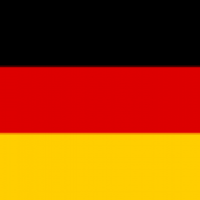Summary:
A German university has developed window flanges for use in pressure and vacuum containers for temperatures up to 650 °C and pressures of at least 300 bar. These values are not achieved with previously known state-of-the-art solutions. The university offers a license agreement that may be combined with a technical cooperation agreement.
Description:
Glass-metal connections represent a particular challenge in container construction. There are only a few joining processes that allow a reliable connection of these very different materials, especially when a large temperature range has to be covered in use. For the monitoring of highly complex processes in closed reaction vessels, it would often be desirable to be able to observe the process and monitor it by means of optical measuring systems.
The invention of a German university allows window flanges for use in pressure and vacuum containers for temperatures up to 650 °C and pressures of at least 300 bar. A sapphire glass window with two different intermediate rings is soldered into a stainless steel flange using a special joining process. The two metallic intermediate rings consist of a material with very low thermal expansion, comparable to glass, and a soft metal, which by its softness can compensate mechanical tensions to the flange. The special shapes of both rings compensate for thermal and mechanical stresses in order to protect the viewing window from tension cracks. Due to the inventive joint geometry and soldering compounds, the material composite is gastight even at very high temperatures and pressures. The temperature strength of the new sealing technology has been demonstrated in extensive series of tests.
The university offers a license agreement to companies in the chemical industry as well as to companies in mechanical engineering or tank construction. A technical cooperation is also conceivable in the case of testing a real application.
Type (e.g. company, R&D institution…), field of industry and Role of Partner Sought:
The university offers a license agreement to companies in the chemical industry as well as to companies in mechanical engineering or tank construction.
A technological cooperation is also conceivable. The innovation has already been tested in an experimental setup and a technical cooperation could consist of testing a real application, e.g. constructive adaptation or the contribution of material know-how.
Stage of Development:
Prototype available for demonstration
Comments Regarding Stage of Development:
A working prototype of the invention has been tested.
IPR Status:
Patent(s) applied for but not yet granted
Comments Regarding IPR Status:
A patent application has been filed in Germany.
External code:
TODE20210318002








